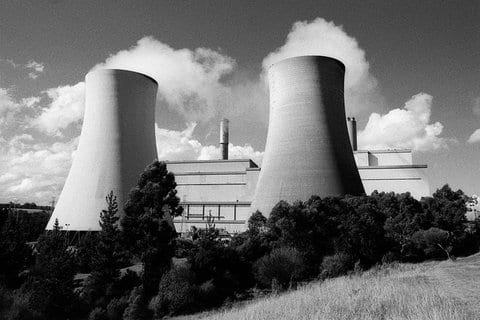By now you have surely heard of the UN Intergovernmental Panel on Climate Change’s latest synthesis report and the increased clamour of claims to eradicate fossil fuels by the end of this century in a near-vain attempt to keep warming to within 2ºC over pre-industrial times.
The report is the summary of the IPCC Fifth Assessment Report, which was produced by over 800 scientists and is the self-proclaimed “most comprehensive assessment of climate change ever undertaken.”
The Synthesis Report (PDF) makes clear that, while “adaptation can play a key role in decreasing” the risks of climate change, “adaptation alone is not enough.”
Substantial and sustained reductions of greenhouse gas emissions are at the core of limiting the risks of climate change. And since mitigation reduces the rate as well as the magnitude of warming, it also increases the time available for adaptation to a particular level of climate change, potentially by several decades.
The IPCC vs. Australia
However, for the Australian Government, the report could not have come at a more inopportune time — or at least, that’s what you would have assumed.
Giles Parkinson of RenewEconomy summed up the IPCC’s latest Synthesis Report nicely:
The IPCC’s latest synthesis report – described as the most important yet made – says the world needs to act quickly to reduce greenhouse gas emissions dramatically; it needs to decarbonise its energy systems; it needs to stop burning coal, and it needs to shift investment from fossil fuels to clean energy.

Yet, the same day, Australia’s Environment Minister Greg Hunt came out and claimed that the report vindicated the government’s $2.5 billion Direct Action policy, adding that Australia is “one of the world’s leading” reduction targets.
It’s perfect political swagger, because when asked about the IPCC’s recommendations to halt use of fossil fuel by the end of the century and increase renewable energy to 80% of the world’s generating capacity, Hunt said that he “won’t be drawn on it either way, it’s a fresh report.”
Australia’s Fossil Woes
The sad reality is that our fossil fuel woes are a direct result of fossil-like thinking in parliament. And such thinking is creating mountains of political fodder for the Liberal Party’s opponents.
The opposition climate spokesman, Mark Butler, said that the IPCC’s report called for direct actions and not a “dressed up slush fund with a fancy name.”
“What will it take for Tony Abbott to wake up and realise Australia must take meaningful action on climate change?” he added in a statement.
Mr Butler highlighted the words of the IPCC Chair, R.K. Pachauri:
We have the means to limit climate change. The solutions are many and allow for continued economic and human development. All we need is the will to change, which we trust will be motivated by knowledge and an understanding of the science of climate change.
A Sudden Increase
Australia currently has to bear the shame of being not only the OECD’s largest emitter of greenhouse gas emissions — by virtue of both its internal reliance on coal for energy generation, as well as its massive coal export industry — but also of being the only country to successfully dismantle a carbon pricing scheme.
And if you needed proof that such a move was diametrically opposed to progress, two new studies have been released that showcase an increase in emissions from electricity generation.
The latest carbon emissions index update by Pitt&Sherry shows that there is an “ongoing trend of increasing emissions from electricity generation,” due to increases in coal generation, decreases in hydro generation, and a drop in both gas and wind.
“As explained in the previous update, this change in trend has coincided with, but is not entirely caused by, the removal of the carbon price,” said Dr Saddler. “Other factors include reduced gas generation in New South Wales, Victoria and South Australia, presumably related to higher wholesale gas prices, though it remained high in Queensland where cheap ‘ramp gas’ is likely to be available for a little longer.”
A Bleak Future
The most distressing takeaway from all of this, however, is that the majority of Australians simply don’t know or don’t care about what the Liberal Government is trying to sneak by us. If Greg Hunt gets up in front of a press conference and says that this new IPCC report vindicates their decisions, then who are they to disagree?
Except, “they” are the only ones who can disagree — by voting at the polls. Anyone else who disagrees — opposition, experts, the media — are all dismissed as anti-Australian, anti-Liberal, anti-economic growth, anti-etc. The ease with which rigorous scientific work can be so easily swept under the carpet is proof of why Australia is so poorly regarded by the international scientific community and clean energy industry.
The recent Global Green Economy Index released by Dual Citizen in October showed clearly that, despite Australia’s high rank as a “perceived” green country, the reality is that Australia’s actual performance ranked 37th out of 60 countries.
The future is resting on those of us who have the will to enact hard choices. Sadly, Australia is left with a government beholden to its financial supporters only, rather than the global community.
Source: CleanTechnica. Reproduced with permission.












